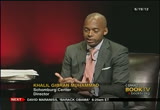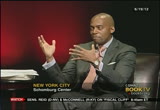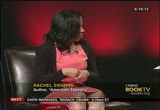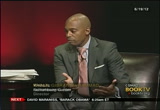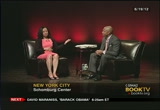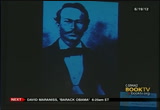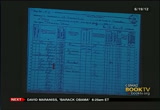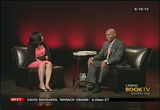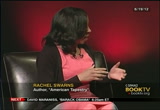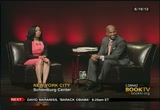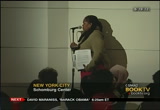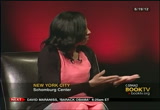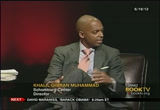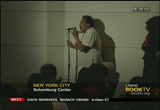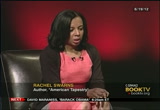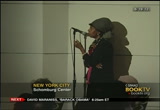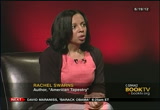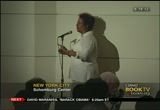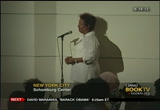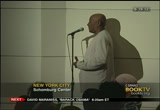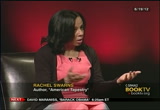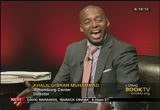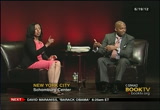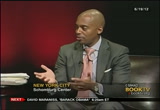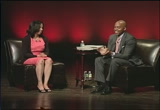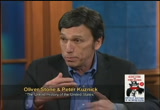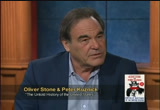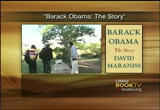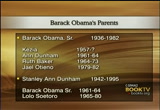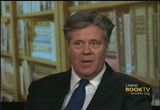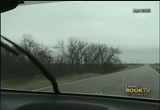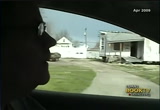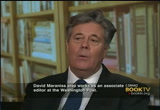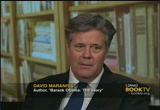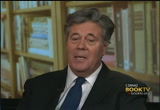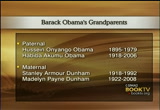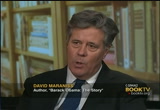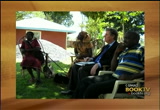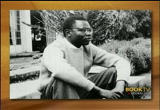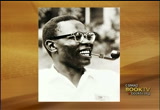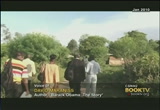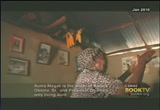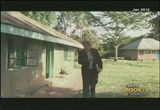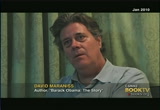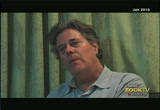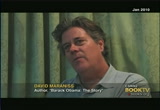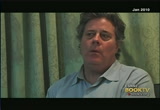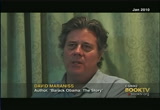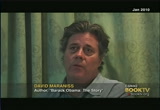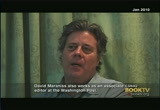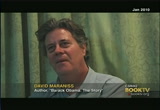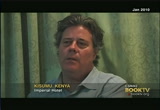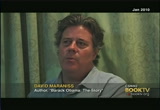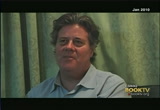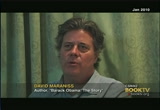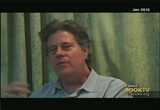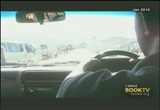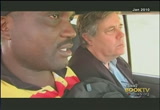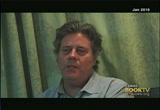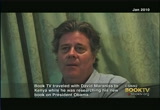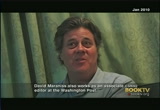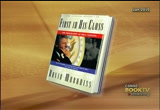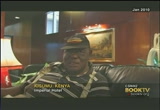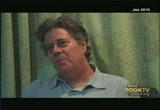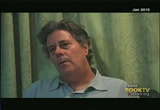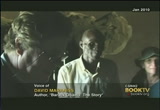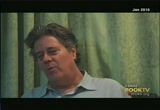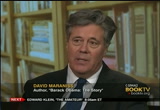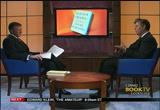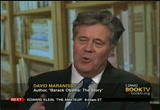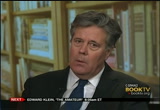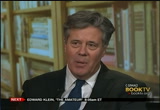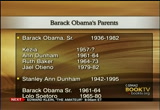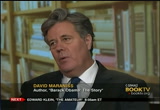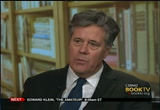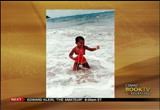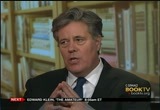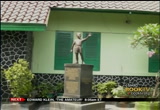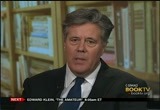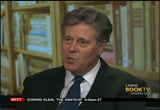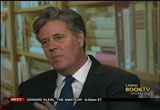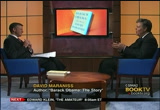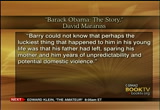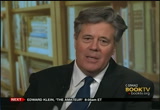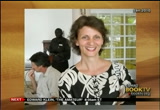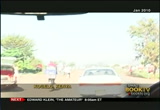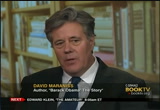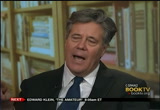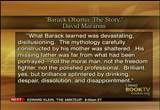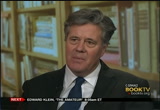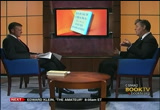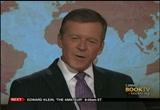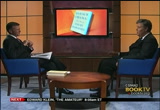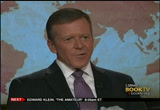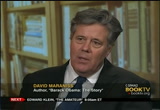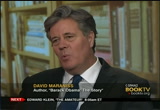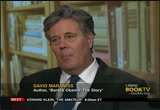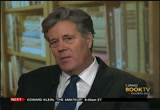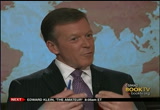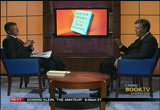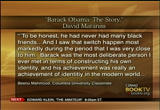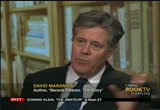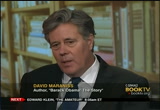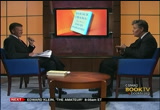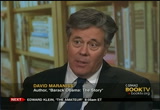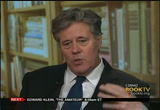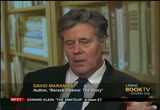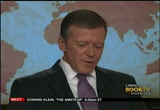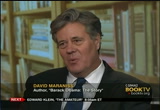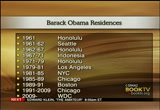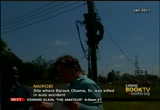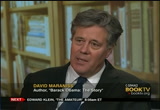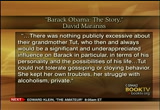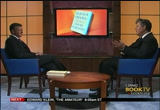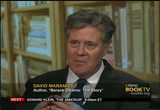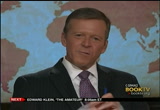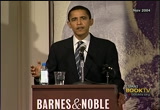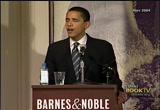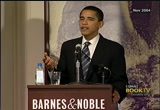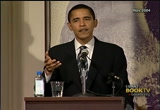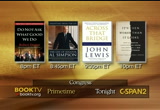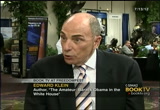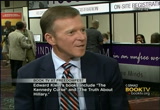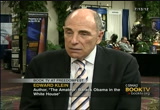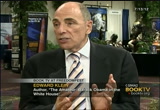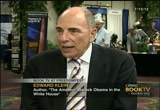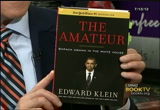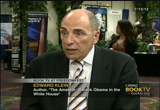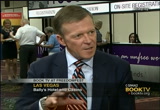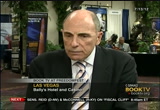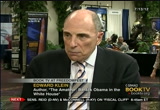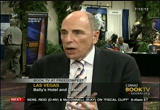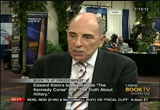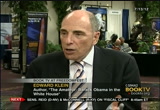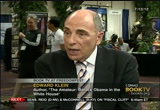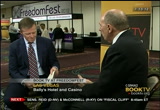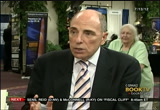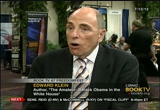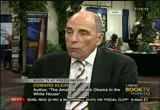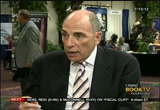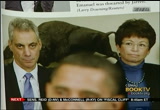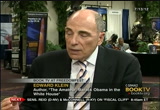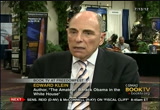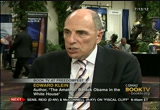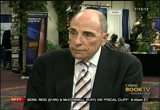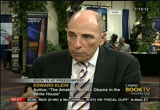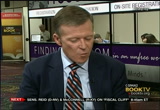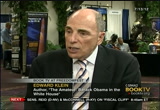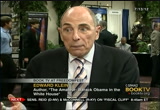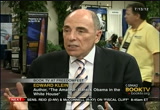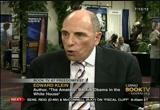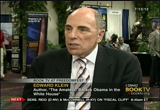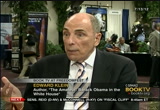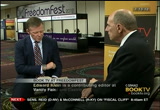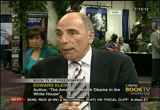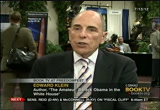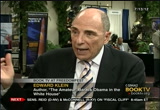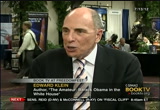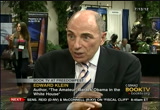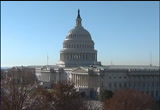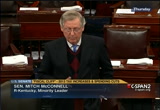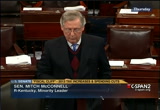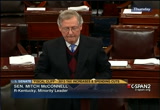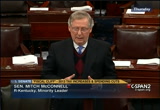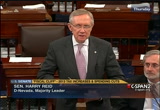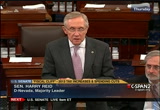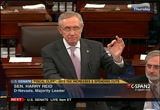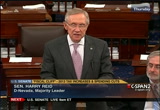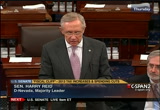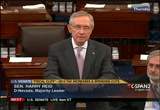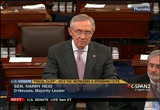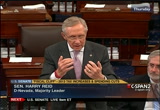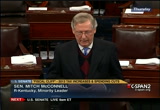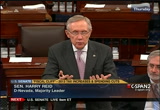tv Today in Washington CSPAN December 28, 2012 6:00am-9:00am EST
6:59 am
7:00 am
documents translated into english, my wife and i live in madison in the summer, so we went to the university, and there was beatrice. should come over to my house any afternoon to translate for me. then i discovered that she would be here right now in we're going to come to kenya. her family is from 10 minutes from one of the obama homes. so beatrice has been an interpreter, today and tomorrow. >> this is -- >> there's another member of my team, too, who was my wife who came along. she is an environmentalist, terrific environmentalist who i
7:01 am
met about seven years ago and is gone on almost every major trip i've taken since then. i'm not a growth or anything but i seem like one compared to my wife, who is the best goodwill ambassador any person could ever have. so she makes friends where ever we go. >> we are going to get to her but i've one question before that. which is, this is not a cheap trip. >> right. >> you, number one, had to get over here. people on staff, full-time, for a number of weeks. >> right. >> does and authors advanced cover all of this, or just a portion? >> well, i can't speak for every author, and this is my 10th book, and i get enough of an advance to pay for all of this.
7:02 am
i have, my own, as an author i have a corporation which is me and linda, so that has funds that i can use for all of this stuff. and i do spend, you know, why do it if you're not going to do it thoroughly? i couldn't have done this trip without that kind of a team put together. so, you know, it's not like you get an advance and then go spend it all on vacation. a lot of it goes into the work of making the book. >> the family connections, the obama family connections, as a passive observer, my head is spinning. i don't know who is who. >> okay. that's going to be a challenge for me, to come in this book, for a couple of reasons. one, it's a fairly complicated family web. and the second reason, which is
7:03 am
unavoidable is that kenyan names read by readers in the united states can sound, you know, different and harder to remember who is who, et cetera. so i have to be able to deal with that, ma and that's a challenge for any writer. i get some ways i done in the past. you know, essentially what's important to me is not quoting somebody. when you write a long narrative, you're not putting together a string of quotes, this person said this and this person said that. you're building a narrative story. so i would take elements from each of the people that i interviewed and weave it into the story that i tell. so some of them will appear and some of them won't. and they will appear in ways that the family tree will become understandable. but you're right, you know,
7:04 am
there's a whole obama clan down in one section of come here, the kendu bay area, and there's another one, which the united states knows better in a larger district. and that's where obama's stepgrandmother lives. they are not even blood relatives but she's the one that everybody goes to visit, everyone thinks that's where the obama's are from. there's a whole nother group of obama's that i'm going to deal with, probably in a more substantive way than her, in terms of where the story really comes from. it reminded me a little bit of windows during the clinton book, and what people saw was, because he said, it is in clinton's convention acceptance, a man from hope.
7:05 am
from hope arkansas this little town in arkansas. the simplicity of the world life and, in fact, he was from hot springs, a completely different place, much more cosmopolitan and complex, and with a darker side to. the obama store, what people don't know is -- the real story of barack obama, sr. and his father takes place somewhere else, down in kendu bay, and that's where the african section of this book will start. >> final question. you want to introduce our viewers to -- [inaudible] >> leo, you could not make up. he belonged to some kind of african john rawl novel. he is 73 years old. he walks around with this menacing sort of club. he's got a deep rolling voice and laugh, and he seems to know
7:06 am
everybody in africa. from the former president of tanzania to idi amin, the dictator of uganda back in the '70s and '80s, to everybody in kenya. and he traveled with us. we met him yesterday, had three or four hours of fascinating discussion, and then he traveled with us today in the morning. he was very close to barack obama, sr. and to obama's patron, onyango, and knows all of the political intrigue in kenya and a lot of the personal promise and flaws of barack obama, sr. >> was he valuable? did you have to listen carefully to what he said?
7:07 am
>> well, it was not easy to -- luckily, this is the other thing. you can go on a trip like this unprepared. so i had spent months studying kenya politics, learning everything i could, going to an archive in syracuse that had the kenya archive. a lot of information i got from there. and i really knew a lot of the background. if you just had a conversation cold with leo, you wouldn't have understood a word he said. but i knew where he was going. i knew a lot of the beginnings of the stories, and so yes, i could piece it together, and filled in 100 holes for me. both of politics and of obama's seniors personalized. >> last question. you found and went to the house that president obama stayed at in 19 --
7:08 am
>> eighty-seven. >> where was it? we're going to show the video. you looked really excited about it. >> that's one of those moments that i described when we started this interview where you just think, man, i am right here. this is an incredible place to be and 50. impossible to find just out of the blue. it was in what's called the obama clan compound in a little teeny, sort of, well villager compound in kendu bay, probably an hour and a half from the city of consumer -- kisumu. it now had a cement floor but we were told would obama's slept they are there was no cement, just rolled much. and he spent two nights there.
7:09 am
when he was visiting that area, that part of the obama clan on his journey through africa, his first ever trip there. just to think, it's not like, it has nothing to do with how i feel about obama. and really, i don't approach the book that way anywhere. is just the main character of my book. and has nothing to do what i like him or dislike him. it has to do with the history of seeing this little place, before anybody, anybody knew who the hell barack obama was. you know, he was 26 years old, making that first journey back to a land that he had never seen before. and i was looking at this little hut on the floor where he slept of those nights back in 1987, and just kind of come it didn't overwhelm the but it made me
7:10 am
realize that, to see history as so much more powerful than just sort of think about it or read about it. i mean, i'll be able to portray it, but to see it brings it alive for me. and also brings my work to a life. >> host: that interview was shot over two years ago. anything you would like to change? >> guest: i'd like to change my looks, first of all, and my voice. but there's a couple things that changed. one is the title of the book. you do, determined that out of this, even though it was meant to evoke the fact is a global character, to easily can lead to double entendres or something else, so scrap that. and my publisher asked -- came up with a brilliant idea, so that's what we did. i'm really happy with it. there some of the elements.
7:11 am
i in this book, because i got so much rich information about a 10 year period from the time he left honolulu to go to college until he finished his community organizing to go to harvard. this time is so important in terms of the evolution of his search for identity, that it really consumed a lot of the book. it was earlier than i expected. there will be in a volume something, but this is the book now. the ark of the book is somewhat different. the title is somewhat different. the essence is the same. barack obama and how he recorded himself. >> host: so the book ends in 1989 as he is going off to boston, correct, to harvard law
7:12 am
school? >> guest: yes. >> host: barack obama is filed going to make an appearance in your book, is it about halfway through the book lacks. >> guest: not halfway through. it's a 580 some page book. >> host: how did his parents meet? >> guest: well, his mother was 17. she was a freshman at the university of hawaii. >> host: i apologize. take it one step back. how did she get to hawaii? >> guest: her father, who had been a furniture salesman in mercer island, or in seattle, washington, he got a job selling furniture in honolulu. he was always looking over the next thing. moving west. he moved from kansas, california, spent time and seattle, seattle to hawaii. so she came along as a family. she was only 17 when she
7:13 am
graduated from high school, and excellent public school in suburban seattle. her name is stanley and. his name was stanley. barack obama had been there since 1969. also an undergraduate even though he was much older. and they both happen to sign up for a beginning russian class. this was during right after sputnik and the schools all of the country are starting to teach russian. it was the most important thing public schools could do, prepare the u.s. for the cold war. so they both ended up in a russian class and that's what the met. >> host: how long do they know each other before they got married? >> guest: they knew each other for five months. they met in september. they got married in february. she got pregnant before that.
7:14 am
so it was, everything about it was, you know, it was not a normal courtship, normal, let me put it that way than what what were battle and and stanley's reaction to stanley ann bringing home an african? >> guest: maslin told another biographer, i met before i started this book. david mindel who did the first obama books in madelyn described obama senior to him as very strange. they were not happy. you know, i don't want to say horrified, but it was difficult for them. it wasn't necessarily because of race. there were a lot of elements to. his personality, that he was so much older.
7:15 am
their daughter was barely 17 when they met and when she got pregnant. she was an incredibly intelligent young woman. so this had a very difficult effect on her life. they didn't know, but another element, obama, sr. was, i noticed in the tape part of that i was reluctant to use the word womanizer. well, he was, and he was doing that in honolulu to say she was by no means the only american woman that he had been with. he was trouble from the start. >> host: barack obama, sr. married four times. first in 1957. did they ever get divorced? >> guest: interesting. they get married the young in kenya, and in their culture, according to obama, sr., in that era you could just say i'm divorcing my wife and that was a divorce.
7:16 am
so when and i'm -- ann dunham married roxy me, she did not know he was married. in that sense he was a polygamist when he married her, and they married in 1961 as you said in february, and legally married through 1964. barack obama seemed was also married to ruth baker. in his final marriage was to jael. how many children did barack obama seen in the path in? how many have ceilings -- siblings does the president have? >> guest: i think i said i didn't know. there were a couple of children -- i do want to get too far into that but i'm not sure the number of children. it could be as many as eight. >> host: back to hawaii.
7:17 am
i be worried 1961, barack obama, sr., ann dunham gets me. the president is born on august 4, 1961, and by the end of that first month of his life, ann dunham is taking into seattle. >> guest: there's a lot of stuff surrender. which has nothing to do with birther idea of him being born in mumbai or some other place, which has been fairly documented completely, fabricate untrue. he was born in honolulu. as he would tell the story later in his own memoir, it wasn't until his father left for harvard that the family split up. and even the reasons for that are not what he says in the book. but shortly after he was born, his mother went back to seattle. part-time come in extension courses at the university of washington. so they really never lived together. when i interviewed all of those
7:18 am
people who knew barack senior during the period, before he graduated and left, only one person can remember her at all. the others constantly never saw. so \mr.{-|}\mister, what was that? she left. >> how long was she in seattle? >> guest: about a year and a half it as a single mother with, yes, and she had babysitters and she went to school part-time. got herself back together. that first semester at university of wide was the difficult because she got pregnant. so she had to sort of reveal herself on academically, and she did at the university of hawaii. and after barack, sr. had left hawaii to go to harvard, she and little barrie came back. >> host: 1962-19 safety seven they were back in honolulu. who was her second husband? >> guest: her second husband was another international guy.
7:19 am
he was in indonesia. she met him at the university of hawaii. he was from the east-west center. brought americans the honolulu to prepare to go to asia for study. and that's where she met him. he was a tennis player. she fell in love with lolo. >> host: at what point did the move to jakarta? >> guest: he went back first. you know, both barack, sr. and lolo were constantly being watched by the ins and different regulations, and so lolo could only stay for a certain amount of time. he kept trying to extend his visa after he married her, and found ways to stay. so we got certain jobs that were
7:20 am
related to geography and topography in honolulu to keep them there, but eventually things were changing and very dramatic political ways. he was back in 1966. in 1967, in october, barry obama and his mother moved back to indonesia. >> host: so the president lived in jakarta indonesia from 67-71, ages six through 10? >> guest: just about, yes. about four years. >> host: while you were in jakarta, david maraniss, you found a school where barack obama went to school. >> guestschool. this is where barry first attended school in jakarta. [inaudible]
7:21 am
7:22 am
>> host >> guest: the statute is outside the second school he went to. of little barrie. shorts, short sleeve shirt. the second coal have much more money than the first. the little catholic school, he actually went to to to enacted, and then the family moved. his father got another job working for union oil and got more money. >> host: was that put up -- >> guest: that was put up a couple years ago. very controversial. they were people there who didn't want that statute to go a. obama, i think he ran for president of indonesia would win in a landslide. everywhere in the world there's some controversy about any politician. and so there's some questions about it but not everyone in indonesia is very proud of him
7:23 am
than what what was his life like in jakarta? >> guest: imagine being a six-year-old kid thrown into the place we didn't know the language or the culture and you're just living in sort of middle class, lower middle class section of town, and with alleyways and the exotic sounds and smells of the big city of jakarta. with your mother going to work and your father riding a motorbike to his job, and just being thrown in with the people. and that was his life. the adapter. he had to adapt. and obama's life is a series of adaptations. >> host: why did he leave jakarta in 1971? >> guest: well, he left because his mother community, by the way this international school in jakarta, his mother couldn't afford to put him there. he was there three and a half
7:24 am
years. he was learning the native language. she was waking up at 4 a.m. to teach him, with english schoolbooks before that, to supplement his learning. it was very difficult. the whole process was something that she realized she loved indonesia, she was still married, she wanted to stay, but he was coming to a point where she had to make a key decision. it turned out he could get into the best private prep school in honolulu, so he went back in sixth grade. >> host: lived with his grandparents. >> guest: yes. by that time had moved to an apartment, which will or five blocks from the school, and he lived there from fifth grade through --
7:25 am
>> host: so he lived with his grandparents in honolulu. >> guest: some changes. there's a period where he never did come back. they lived a couple blocks away, for about two years when she went back there to indonesia. but the bulk of that period he was their. >> host: and that was 71-79, back in honolulu. >> guest: yes. >> host: what was his life like? where did he stay? ytd study? what kind of grades did he get? >> guest: by the 19 -- when he got back, his mother and lolo were separated and soon-to-be divorced. he was always really very obama. he was a fine student. he wasn't a serious student of any means.
7:26 am
he was smart enough to get by. more than get by with his grades without ever really applying himself to hard. is real love with basketball. it's kind of an interesting twist that the one time he saw his father when barry was of a conscious age was in honolulu when he was 10 years old and his father came back for three weeks during the christmas break and he gave him a basketball. from that point, basketball was incredibly important to young barry. there's an important theme of his adolescence and his life, because it connected different parts of them. think about basketball. invented by doctor naismith, who came down to kansas iraq invaded again. so many great figures of basketball came out of kansas.
7:27 am
obama's great uncle on his mother's side was a very good basketball player. he got his basketball genes from that. but basketball was also way to show a black kid could identify with african-americans in the way, you, living with his white grandparents. it was a black game so basketball had all these other escapes besides being something fun to play. i think that really was one of the central themes of his adolescence. >> host: you write, david maraniss, in "barack obama: the story," barry could not know that perhaps the largest thing that happened to him in his young life was that his father had left. sparing his mother in him years of unpredictability and potential domestic violence. >> guest: well, i can write that in a speculative but when you state history of barack obama, sr., it's not, it's reality. it's a very difficult reality.
7:28 am
it grows out of what happened after. after he and ann had a short time together, he met another woman at harvard. just like with ann, he swept her off her feet and she became entranced by him. she went back to kenya with him, nairobi, ma and married him. and i interviewed her. i was the first reporter to interview her. that's the way these things go, and more power to sally and all these biographers who come after me. the story moves on, it grows deeper and deeper. but in any case when i talked to her, she told me the stories of how abusive barack, sr. was,
7:29 am
that he beat her commune, he was an alcoholic. that would've been the fate of barry had they stayed together for a while in kenya, we talked to you about ruth baker and i want to show just a little piece of video. >> where is she now? [inaudible] >> is going to come up and have lunch with us. the interview is a little later. spent david, who is that? >> this is the fifth member. lisa, an american who lives in mumbai, who is also a writer.
7:30 am
7:31 am
>> very interesting. yes. but that will never happen. too hypothetical. >> thank you for giving lisa credit for helping find -- that was very important. i will never forgets sitting in the back of the kindergarten on the lawn for several hours and pouring her heart out. >> host: after she married barack obama she stayed in kenya. >> guest: she married another african and took that name and had two children by barack senior and another by the second husband, she stayed the whole time, she is still very much
7:32 am
part of the nairobi community and ran a kindergarten their cause for many years. >> host: 1964-1973 they were married. how long had she known him before she quit school? >> she finished school but she was teaching by that point. no longer than ann knew him. what she didn't know was the reason he left cambridge was he was kicked out. the imf had had enough of him at harvard. >> host: drinking. >> guest: drinking and they had been following very closely -- i want to go back to one little thing, just because local corporate idea is so troublesome to me and any serious historian. there are i n f documents that show immigration officials tracing barack obama senior before and after the boy was
7:33 am
born. no way he could have gone anywhere else and had that -- in honolulu. any way he was kicked out of harvard before he got his ph.d. to go back to nairobi. he went back, called himself doctor even though he never finished his dissertation. he was brilliant. she followed him a few months later, showed up in nairobi, not knowing what she was getting into. >> host: back to your book "barack obama: the story," you write what barack learned was devastating and disillusioning, mythology constructed by his mother was shattered. his missing father was far from what he had been portrayed. not the moral man, not a freedom fighter, not the paul the professional. brilliant but brilliance splintered by drinking, despair, dissolution and disappointment. >> guest: it is amazing to think
7:34 am
about ann dunham, her dealings with her son barack. and why she told the story she did is purely out of love. she never said an old word about barack obama senior because she didn't want to destroy this little boy who had enough to deal with in his life. i find it completely understandable why she did this. year by year, started to understand to some degree the reality had to be different from what he had been told but wasn't until he got to kenya himself. >> host: in the introduction to your book, david maraniss, you write without dismissing the anger and confusion he surely
7:35 am
felt as he tried to sort out his identity, you would argue that to view him primarily through a racial lens could lead to the root causes of his feelings outsider and his response to it. >> guest: this is not to diminish the role that race plays in his formation. it is central. but there's another thing involved which is his search for identity, a lot to do with race but also of the fact that involve leaving and being left. his father left before he was conscious. his mother in essence as much as she loved him, inculcated her philosophy of life, was done for most of his formative adolescent years.
7:36 am
7:37 am
president, here is a quote, jeff cox talking, had the ability to project cool, it seemed to me, calm, almost nonchalant, part of the image, not just of him but generally in hawaii where in my mind there was some line between sophisticated the attachment and slacker or lazy, very exuded sophisticated detachments, he has his act together, understood how things worked all little better than the rest of us. >> host: 16 years old jeff cox is talking about his classmates, seeing characteristics of his presidency, that has not changed that much. the reason for that detachment, has to do with hawaii. there is that native hawaiian thing, no matter what else is going on, keep cool here.
7:38 am
that is sort of the sensibility barry and his buddies who had his buddies what they call the true game which basically is basketball and smoking dope. just be cool. that is part of hawaii, part of barry's formative years and he has always had that nature. another aspect is more developed and related to politics which is in this country and all that racial dynamics and explosiveness, a black person wants to rise and politics has to take hold. that is part of the mandate of the country. >> host: how much pot smoking to the president do in honolulu? >> doesn't write particulars about that. the whole notion of bill clinton
7:39 am
never in hail, that was the point, when jay leno asked about it, without going overboard, documents it pretty thoroughly. that is what they did. there was that total absorption which meant you inhale everything, he was smoking so that was part of his existence. >> host: david maraniss, when did barry become barack? >> guest: it was gradual. it started with the college in los angeles that he attended for his freshman and sophomore years and there were a few people there, and african student, one of the african americans and some others who started calling him barack, starting -- many college students start to go
7:40 am
back to find their identity in college and that is what he was searching for. many classmates call him barry and when he got to new york, those four years in new york city people call him barry and some call him barack. >> host: why did he choose occidental and why transfer to colombia? >> guest: he of people who were going there and the way he tells the story, there was a girly in honolulu who was in that area so he got that -- it was like the next step. it was comfortable, beautiful,
7:41 am
small, elite, california sunshine, very comfortable. it was an important two years. restarted to expand intellectually. he got his first sense of destiny in those two years but left because it was too -- he wanted to experience the world and was finding himself. taken to los angeles, to new york and chicago but it is important to get to new york first. he starts his junior year. >> host: his first night in new york city. >> i was a little dubious but turns out to be true. he was not that spending night in that apartment would be better, but he couldn't get in. he couldn't get the keys and couldn't find the landlord, a friend of a friend of his
7:42 am
mother, he left outside with his suitcase -- barre had called him and found a cue the next morning. >> host: genevieve makes a scene in new york city. who is genevieve? >> guest: and australian to his mother mary, second marriage was to a notable american, bill jesup, the family had american ties to a private high school in new york state and came to new york city and met barack obama, as she called him, after he graduated from columbia. they have a lot in common from
7:43 am
the moment they met. indonesian connections, fodder and mother had lived in indonesia, he was a diplomat, she had lived there in the same area when young barry was there. she felt like an outsider because like many children, connections to any place, her family was in the upper crust but she never felt connected to that so she and bury, barack, both had this connection as outsiders with indonesian connections as well. so they became lovers and she moved to new york. >> host: were you the first journalist to talk to her? >> guest: it took two years. it took hard work on the part of
7:44 am
me and julie tate of the washington post and gabriel banks who was my researcher and she was living in los angeles and the three of us trying deleted everything and i found her fill. i can't tell all of that story because to protect her not because of the book but because she had an abusive ex-husband and we don't want to find her. in any case -- we started with just the name genevieve. i found -- a wedding announcement in the new york times ran a lot of bells because it had indonesia in it, conn. in it, obama in his memoir starts
7:45 am
about taking it up to her family's estates in the pond in wealthy areas in connecticut. it stuck with me and studied court records, i found another name for her and tracked her down and made the call. we have a lot of conversations since then. >> host: you write in your book, quoting vino mahmoud. he had never had many black friends. i saw that switch happen most markedly during the period that i was very close to him. he was the most deliberate person i ever met in terms of constructing his own identity and his achievements, really an achievement of identity in the modern world. first the shift from not
7:46 am
international to american and not white, but black. >> host: >> guest: beenu mahmood was one of a group of pakistani france he had in new york. they shared with him sort of an international perspective which he lived in indonesia and his brother was there, he was searching for himself and comfortable with these guys. when he got in new york, they move their, he was the various to guy -- very astute guy. obama moved to new york to find his blackness but it didn't happen. president obama when i interviewed him in the oval
7:47 am
office acknowledged he made no lasting african-american friends in his four years in new york. he was starting to make that transition in his search for home. that change was starting to happen and beenu mahmood perceptively saw that going on and took him to chicago. >> host: why did the president stay in new york after graduating from columbia? >> guest: wanted to get into community organizing. he actually applied for a job in chicago. he didn't get anything. the best he could do was stay in new york if. he didn't want to go back to honolulu. didn't have any place else so he stayed there and as he put it he tried to make money and get a job in a sort of
7:48 am
magazine/consulting outfit called business international for about a year. he didn't like it there. it was the business world which held no interest for him. that was the period beenu mahmood and also the period he met genevieve. >> host: david maraniss, back to the quote we started with, no life could have been more the product of randomness than that of barack obama. chicago became random, the fact that he got to chicago? >> i would not call it random. for the election of harold washington as the first african-american mayor of chicago was very attractive to him. chicago was the place to be at that point as i right in the book. three people arrived in chicago, michael jordan came during that period, and barack obama came
7:49 am
anonymously and arguably today. >> host: jerry gelman, a chicago community organizer, said obama was one of the most cautious people i have ever met in my life. he was not unwilling to take risks but was a strange combination of someone who would have to weigh everything to death and then take a dramatic risk at the end. >> guest: that sounds like president obama too. in some ways that characteristic can be looked at in his life and career. as a community organizer, the whole notion, the method for community organizing was to take action, our does not exist in a vacuum. youpower does not exist in a vacuum. you have to seize it. cameron was one of his bosses
7:50 am
during that period, barack was a different story. he was looking for ways to not confront but achieved in other ways. that can be frustrating at times but help him get where he wanted to go. >> host: when he was there as a community organizer what was the president's life like? >> guest: he lived in hyde park which is a community near the university of chicago, the part of chicago that is the most anticipated part of the city first, a city that is notorious as the most segregated big city in the united states. that is what the kerner commission called in 1959. it was true to different degrees when obama got there. the pocket of integration, he is comfortable there. he would spend every day going to the south side which was 99% african-american, mostly poor, a
7:51 am
vast sprawling rich area, ridge in terms of personnel, which he really felt that home for the first time in his life. he was embraced by a group of older black women who sort of took him under their wing and loved him and created a sense for him that he never felt before. but was incredibly frustrating. community organizing, you keep banging your head against the wall. during that period, he became a community organizer largely out of his mother's sensibility. she had done organizing of a different sort, trying to help poor women, partisans survive in the male-dominated culture. beliefs were transferred to him. that is why he did it but he also thought his mother was
7:52 am
naive in terms of power realities of the world. in those three years on the south side, he started to see what power meant, how you get it and how to exert power and that took him into politics. that is why my book ends there because he has learned everything. michele is not in the book because he has to find that woman that is michele. he figures himself out, his self identity and what he wants out of life which is power, political power, he needs to go to harvard and needs to get into that life. >> host: in the interview you conducted on november 10th, 2011, you quote the president as saying there is no doubt that what i >> reporter: in my politics is a
7:53 am
sense that the only way i could have a sturdy sense of identity, of who i was dependent on digging beneath the surface differences of people, the only way my life makes sense is if regardless of culture, race or religion or tribe there is some commonality. these are essential human truths and passions and truth and moral precepts. >> guest: in some ways that is a variation of what he said in a speech that made him famous in 2004 keynote address at the democratic national convention in boston where he said there are no red states or. states that the united states. that prevented himself as the personification of that notion. his presidency has been a rude awakening in terms of how far he could take that. he has been dealing with the promise and frustrations of that idea ever since as i am sure we will both be experiencing when
7:54 am
the telephone calls come for the show. >> host: your book ends in 1989, "barack obama: the story". you say there's another volume coming. >> guest: 40 years of robert caro who is one of my heroes, check that out on the down load. i have every intention -- i have a lot of reporting which influenced this first book even though they are not in it. i don't want to do quickie, i don't want my books -- i write them for history. there are a lot of documents that will be coming up later. >> guest: the book ends 1989 but at this point barack obama so far, 1961, born in honolulu, 61-62, lived in seattle, 62-67 back to honolulu, them jakarta, indonesia 67-71, honolulu 71-79,
7:55 am
los angeles 79-81, attended occidental, move to new york, colombia, live there four years 1981-1985, and 1985 in chicago until 1989, off to harvard law school. two more pieces i've want to ask you about. now we are in 1989. where is his father? >> his father is dead in a car accident, driving drunk from a mid shift, from nairobi hospital. in nairobi we saw the streets, drunk driving several times in
7:56 am
his life. >> host: our his grandparents the live? >> guest: all three are alive. his mother died right before his book came out. dreams for my father. for the first iteration of that book in 1995, of you during cancer at age 52 i believe. so she never got to see his political career at all. and madelyn, his grandmother, a strong figure in his life, the steady one, died two days before he was elected president of the united states in november of 2008. >> host: two more quotes from "barack obama: the story".
7:57 am
by the time barack had reached chicago, malia was intent grade, grandfather had retired after 20 years in the furniture business and another 20 selling insurance. the salesman had ended his life's work which never liked and never did well. he was a smart man who had not come close to fulfilling his potential. during the years berry lived with him the grandson alternated between taking pleasure in outsmarting the old guy and feeling some combination of sadness and anger witnessing the despair of someone who was unfulfilled can you also write there was nothing publicly excessive about their grandmother who than and always would be a significant and underappreciate it influence on barack in particular in terms of his personality and the possibilities of his life. he could not tolerate gossiping behavior, she kept her own troubles, struggle with alcoholism private.
7:58 am
>> guest: i should say and don't mean to correct you, i wrote -- it comes -- some people right but the real is touch. the grandmother -- i have done a lot of reporting about the grandmother and what a rock she was in the family and president obama announced during my interview in the oval office that she is an alcoholic for. both of them are fascinating characters. the grandfather with out the tragic ending is like death of a salesman. he has big hopes starting the moment the two match when stan told madelyn he had been to california and new john steinbeck and was going to be a rider and had all of these
7:59 am
writings he had done and then madelyn's brother was drunk and there was nothing there. the fantastic life. willie logan. and madelyn had these greater additions, her role model was bette davis, she wanted to be sophisticated and the moment she mary's ann dunham she has to carry the load in this relationship, incredibly dependable and always -- to the office of vice president of a bank in hawaii. president obama when i interviewed him describe them as characters out of mattmen which i found interesting. his grandmother madelyn was like peggy, like his secretary to one
8:00 am
of his great ad people on that show. it wasn't always easy for barre as a teenager to live in that family. he never felt unloved. interestingly stan was more problematic to a dorr and shower as much attention as he could even though there was trouble in other ways. madeleine was always there for him. she was the dependable pragmatic one. >> host: for the last hour-and-a-half we have been talking with david maraniss, author of "barack obama: the story". this is his tenth book and it is your turn if you would like to call in court e-mail or tweak. the numbers are up on the screen. the e-mail address booktv@c-span.org and twitter
8:01 am
handle twitter.com/booktv. david maraniss, we will begin taking those in just a minute. david maraniss, in your book you reference dreams from my father quite a bit. these are rebutted or supported. here is of little bit from president obama in 2004 talking with your politics? it is high court in hawaii with
8:02 am
an unusual name traveled in indonesia, came back, found himself in chicago, working in the lowest income neighborhoods in the country. and then traveled back to africa and somehow was able to weave together a workable meaning for his life as an african-american, as an american and as somebody who is part of the broader human family. that was not an easy task. it wasn't an easy task not because i did not have some enormous love from my family, i did. it wasn't because i didn't have people helping me every step of the way. i had that held. it was because i found myself born a strides a nation and a world that is so often divided,
8:03 am
divided along lines of race call long lines of class, divided along lines of religion. so we have this enormous tragic history that all of us confront from whatever our backgrounds are whether we are white, black, hispanic, asian, muslim, jew or christian. the notion that in fact in the words of a great rider who happen to win the nobel prize, william faulkner, the past is never dead and buried, it isn't even passed. all of us are confronting constantly our history, confronting the history of slavery in this country, and the history and problems that arose in the conflict of colonialism. we are confronting those scars
8:04 am
of violence and oppression and struggle and difficulty and hope not only on a larger canvas of history but also when -- with our own families. for me, it was not entirely obvious power in fact i was going to be able to integrate and pull together all those different strands in my life. so part of my challenge growing up was to figure out how do i function as someone who is black but also has white blood in me. how do i function as somebody who is american and takes pride and understands the enormous blessings that come with being an american but also able to recognize that i am part of something larger than just a
8:05 am
nation state. >> watch the rest of this program on line at booktv.org. david maraniss answers your questions and discusses his book "barack obama: the story" for an additional hour. >> every weekend on c-span2, booktv with 48 hours of nonfiction books and this weekend next, booktv in prime time on c-span2. tonight at 8:00 eastern, robert draper on his works on the house of representatives after republicans won a majority in 2010. that a book party for the autobiography of wyoming senator alan simpson. after that congressman john lewis on the civil-rights activist work in the 1960s and later congressional scholar thomas mann and norman ornsetein in their partnership in congress. >> author edward klein joined booktv at freedom fest to talk about his new york times best
8:06 am
selling book "the amateur". he looks critically at president obama before and after he reached the white house. here is what he had to say. >> the book currently on your screen has spent several weeks on the new york times best-seller list, many weeks at number one. "the amateur" has been written by edward klein who is our guest, booktv on c-span2. where did you get a title for this book? >> guest: it came from a meeting bill clinton had in chapel:00, new york, north of new york city where he has a home. this was back in august of 2011. his wife, his daughter and a bunch of friends to meet with him because he had news. he had done a secret poll in 2011 and polls showed if hillary clinton would challenge barack
8:07 am
obama for the democratic presidential nomination in 2012, he thought she could win. she was surprised by all this. she said what can i do? secretary of state, i have lunch with the man every thursday. what about loyalty? he said there is no such word as loyalty in politics. he went on to say the people around obama did not understand how the real world works, that they had been responsible for losing america, aaa credit rating, the first time in its history and barack obama was in his words and amateur. i spoke to two people who were at that meeting. when i heard that i said "the amateur" is the perfect title for this book. >> host: president clinton has denied publicly used that term. >> guest: he has denied it but hillary has told her friends that she suspected of all
8:08 am
people, chelsea had told me about this. that is not true. i never met chelsea clinton but apparently chelsea has a reputation talking to friends in the middle of meetings with her parents but it was a confirmation that the meeting did take place and it was an accurate representation of what went on during the meeting. >> host: you talk about chelsea clinton's reaction to the 2008 presidential primary on the democratic side. >> guest: chelsea like bill, her father, they're very close, fell that the democratic nomination was practically stolen from her mother, that she deserved to be the presidential candidate, not barack obama, and the obamas had unfairly characterized her father, bill clinton, as a
8:09 am
racist during the campaign. so she really wanted her mother to get back and challenge obama and run for president. >> host: aren't all presidents amateurs when it come into office? >> guest: most of them are but i don't think dwight eisenhower was. i think he understood how to be a manager, an executive, how to get things done. i don't think lyndon on johnson was an amateur when he inherited the presidency after the assassination. i think of wyndham johnson who could not give a good speech, who did not speak well for the teleprompter, who understood how to manipulate the levers of power in washington. he understood human nature, understood the strengths and weaknesses of the people in congress and how to play on those weaknesss and strength. obama doesn't have that skill
8:10 am
sets to use human nature to get done what he wants to get done. >> host: how many book to be written? >> guest: this is my eleventh book. there are three novels and eight nonfiction books. >> host: what do you say to critics of your book? you refer to this book as journalism. >> guest: what do the critics say? >> host: criticisms about the accuracy of the stories that you tell. >> guest: fact of the matter is as far as i know there has not been a single fact in this book that has been challenged in a credible way. people say edward klein makes things up. that is what kids in a schoolyard, they call each other names. i have been a called all kinds of names but when it comes to the credibility of my reporting i don't think anybody has laid a
8:11 am
glove on me yet. >> host: you are former editor of new york times magazine. how many days did you do that job? >> guest: 12 years as editor in chief of new york times magazine. many of my books have been accepted by vanity fair and vanity fair has one of the most rigorous fact checking department in the magazine business and all of these books that have been accepted, not a single factual error has been found. >> host: you interviewed jeremiah right for "the amateur". >> guest: it was on the record, it was also taped recorded. we sat down for three hours not even across the table. we were sitting the way you and i are sitting with a tape recorder on a table on the side. it was an amazing experience because i expected him to the
8:12 am
bombastic the way he was on those videos, kind of raising his voice and denouncing america, white people, jews, israel. none of that happened during our interview. he was very polite, courteous, low-key, speaking in a modulated voice, quite intelligent to me. i don't agree with a lot of the things that he has been videotaped saying but i must say during those three hours i believed the stories, he told me very interesting stories. >> host: where is he now lives far as his relationship with president obama? >> guest: he clearly feels hurt and bitter that he was thrown under the bus as he sees it by barack obama and the obama campaign in 2008. he felt he had a special relationship with obama that
8:13 am
went on for 23 years. it is a mistake to think that barack obama only new jeremiah right through sitting in a pew in his church and listening to his sermons. in fact barack obama and jeremiah right had a one on one relationship in which they met for hundreds of times in the reverend wright's -- at every step of obama's career he went to the reverend wright for advice, counsel, political direction. this was a relationship that was closer than any relationship in his life with the possible exception of his relationship with his own wife, michele obama. >> host: does he have any contact with the president? >> guest: no. there is no contract. after obama won the presidency the reverend wright told me that
8:14 am
he sent him a note congratulating him on achieving his ambition as he put it and that he didn't expect the note to get him directly so he gave it to a neighbor of obama's to the reverend wright knew to hand delivered. doesn't know to this day whether it was never delivered. >> host: who is steve rogers who you interview here? >> guest: steve rogers from chicago is a professor at the kellogg school of management at northwestern university. >> host: what was his connection with president obama? >> guest: like many african americans, businessmen and leaders who i interviewed, he was an early backer and supporter of obama.
8:15 am
after obama lost a congressional primary to bobby rush in 2000, rush is a former black panther, now a congressman, he was deeply in debt, he went around looking for people to donate money to his cause and steve rogers, very successful businessman at that time before he became a professor gave him $6,000 to pay off some of his personal debts. in return obama promised that he would visit steve rogers and if he won a u.s. senate seat and speak to them so he did win the u.s. senate seat. rogers never heard from him. he called up and asked obama what he come? obama said i am too busy. i am getting phone calls from
8:16 am
warren buffett and steve jobs and bill gates and all these important people and rogers said you promised and obama told him you are not supposed to believe promises made by politicians, are you? rogers got very a angry, and demanded that he show up and eventually he did show up. the point of the story is so many african-american leaders, businessmen and political people i have spoken to for this book told me similar stories in which they were there for him, for obama on day one. they were when they called day one people supporting him, organizing, contributing and once he was elected to the senate and eventually the presidency they never heard from
8:17 am
him again. it wasn't only african-americans but jewish-american donors who gave him back some of the money and never got their phone calls returned. it was oprah winfrey who worked hard for him and then frozen out of the white house and caroline kennedy and on and on and on. the portrait that i derive from this was here was a president who for a man who felt he deserved, was entitled to all this support and didn't go any thing back in return. >> host: what about michele obama? what is her role in the white house? >> guest: i love that picture of michele obama. of very attractive woman as you can see in that picture. she has been on the cover of fashion magazines, vogue had her
8:18 am
on the cover with the headline the first lady the world has been waiting for. michele likes to tell the american public she has no interest in politics, she doesn't like politics and doesn't want to get involved in politics and her main interest is in raising her children, taking care of her husband, doing work for her anti obesity campaign. miley reporting turned up a very different profile of michele obama, a woman who in fact grew up in a household where her father was a political operative of the daily machine in chicago who was actually weened on politics as a child, who married obama knowing of his ambitions. she has been his most important
8:19 am
political partner at every step of his campaign and every step of his presidency and has an enormous amount of influence on his decisionmaking process. >> host: all throughout his presidency and earlier we have heard michele obama did not want him to run for office necessarily and she was the reluctant half. >> guest: we have heard that story. it is a great story. it is a story of a woman who doesn't seem to have any ambition either for herself or her husband but in fact that is not the michele obama that are found when i interviewed her close friends, people who knew her back in chicago, people who now know her. michele obama loves being first lady.
8:20 am
she is a very intelligent, well-educated, well spoken woman with strong opinion but who also has a reputation for liking the very comfortable lifestyle land in the white house she has people taking care of her everyone to and which. she has gone on many vacations, some of them quite controversial, the ski slopes in the west of the united states and at one point during a period of several months, she is living the life of a pampered women and this fits with her personality. >> host: where the clintons were open about their coat presidency boasting that hillary was an
8:21 am
equal partner with bill lee obamas have been careful to hide the fact that michelle was the president's most important political adviser and the one he listens to above all others before he makes major decisions. >> guest: that is so true. of the way she does that is often for her very best friend, how she gets her opinions. her very best friend, valerie jarrett, is a woman who hired michele many many years ago to work with her in a daily's administration in chicago but more importantly valerie jarrett comes from a well-off african-american family with great connections through power sources all over chicago. african-american well-off
8:22 am
businessmen, jewish-american donors, daily political operatives and other sources of influence and as a result, she raised the obamas from obscurity in chicago to a position in which they are socializing and rubbing shoulders with the power centers and these power centers that made it possible for obama to first become united states senator and then president of the united states. so they treat her as though she is there got mother, she is now the senior adviser to the first lady and the president of the united states and obama himself has said i run all my decisions through valerie and i trust her implicitly.
8:23 am
there is no one short of the president and the first lady who has more power in the white house and valerie jerrod. >> host: you also write trying to figure out her mysterious hold on the president and first lady is a favorite guessing game in parlors and dining rooms in washington. >> host: it is strange. what is her source of power? she doesn't have any foreign policy experience but she attends national security council meetings. she doesn't have any economic background but she is often in the most important domestic meetings regarding the economy. no one gets to see the president without going through valerie jarrett. what is this power she has? the only explanation i could come up with after all these interviews i did was that she has given the first lady and the president the impression that she has bareback, she is
8:24 am
protecting them from a hostile world, if you will, all world in which people could come to see the president and make proposals that would not be to his liking. for instance, when as an example when the president wanted to do a mandate requiring religious institutions to provide free medical care, free health insurance for abortions and contraception, bill daley, the then chief of staff brought archbishop bowlen from new york, the catholic archbishop who is now cardinal to speak to the president. when valerie because she was obviously opposed to this mandate as a catholic, when valerie jarrett heard about it she went ballistic because bill daley, the chief of staff, hadn't asked her permission to
8:25 am
allow bowlen to see the president. suddenly with her power of control was challenged, it was at that point that daly started to lose his power in the white house and eventually he realized he couldn't get things done and he resigned. >> host: what is or was valerie jerrod's relationship with rahm emanuel in the white house? >> guest: not a good one. to this day rahm emanuel does not have good things to say about valerie jerrod. he was opposed to the president, not only my reporting but other people's reporting as well, the president going for broke on obamacare. he thought he should do incremental steps first, small steps, popular steps that he could get republicans back and forth. valerie jarrett and michele obama were the two people who said listen, mr. president, valerie calls him barack, the
8:26 am
only person in the white house other than michele who does, you were elected to be not just president but to be a special president, a transformational president, a person who is going to change the direction and course of america and you can't do this piecemeal, you have to take the whole thing, go for the health care bill to go down in history as the person, first president to pass a national health-care bill and he listened to valerie and michele, not to rahm emanuel. this bonet -- was the beginning of rahm emanuel's erosion of power and it was one of several examples in which the president listened to the ideology of salary jarrett rather than the pragmatic advice of rahm
8:27 am
emanuel. rahm emanuel was forced out and to this they resent that. >> host: are you a conservative. >> guest: i think i would describe myself as someone who is right of center. if that makes me conservative than i am conservative. i am certainly not a liberal. my training as a reporter is to let the facts speak for themselves but i do have a sense that this country has been drifting in the wrong direction and that it ought to be righted, if you will, using the word right in both senses of the word. >> host: have your politics changed over the years? >> guest: i think i have been a conservative or conservative leanings for quite some time. i don't think they have gotten any more conservative. on some social issues i am quite
8:28 am
libertarian and liberal. >> host: were you surprised by the findings in your book? >> guest: the thing that surprised me the most in this book, i expected in many trips i took to chicago, i live in new york and went to chicago many times, i expected to find, this may be my own prejudice, that african-americans would, unanimously, tell me how much they love barack obama because they are black, he is black and that is the way things are but that is not what i found at all. what i found is among the leaders of the african-american community, not the street but the leadership, the people who are well-educated, the people who have business interests, the people who are concerned about the direction of the country in a larger sense, to a man and
8:29 am
woman they were displeased and disillusioned with barack obama. they pointed out for instance that today whereas the national average of unemployment, 8.2%, in the african-american community it is 14.1% and in some cities like detroit it is 18% and in some areas particularly among african-american youth it could be 30% to 40%. it is a depression in the african-american community, not a recession, they don't feel barack obama has adequately addressed this, that his economic policies, not only america as a whole but the african-american community in particular. >> host: from "the amateur" you read by all accounts obama was elected to a job for which he has little relish. doesn't find joy in being president. like richard nixon and jimmy
8:30 am
carter he is an introvert who prefers his own company to that of others. >> kind of an ironic that barack obama in public where he makes public appearances comes across as a likable, outgoing, upbeat guy. and we can see again and again that his likability quotient far out runs his polling numbers in job approval. ..
8:31 am
>> the democratic speaker of the house, have a drink with him, reminisce, tell jokes and then start or working out how to get a bill passed. barack obama doesn't seem to know how to do that. he, in fact, in private a very introverted person who doesn't reach out beyond a small group of chicago operatives whom he's brought with him to the white house. >> host: oprah had tried to ignore the ominous change in tone. as barack obama's inauguration drew near, oprah's calls to michelle went unreturned. instead, oprah heard from the newly-appointed white house ceremonies coordinator who told oprah that she needed to talk to him first about the interview. what's more, she had to run her interview questions past jeff stevens, deputy speech writer,
8:32 am
for prior approval. it was a pain as far as pa was concerned said a high-ranking executive at harpo studios. oprah doesn't like having to put up with mid-level clerks. >> guest: right. oprah expected that as a result of her role during the democratic pri pairs where she played a pivotal role in helping obama get the nomination and wresting it away from hillary clinton that she was going to be an important adviser to president obama. and, in fact, after he was elected president oprah and obama spoke at some great length about her, using her to advise him on his communications strategy especially in terms of, um, television which she, of course, knows a lot about. when michelle and valerie jarrett heard about this, they felt that this was a threat to
8:33 am
their control over the access to the president, and they didn't like that a lot at all. so when oprah offered to do an oprah winfrey show from the white house to launch michelle obama's anti-obesity campaign, michelle held a meeting in the east wing of the white house are are -- where the first lady has her office and said i don't want some rich, fat woman being the emblem of my anti--obesity campaign. that got back to oprah. she found out about that. she was furious. she said michelle, and this was what she told her staff -- and i interviewed her staff -- michelle doesn't like rich people, michelle doesn't like fat people, she doesn't want me waddling around the white house. and she then washed her hands of the whole thing and has announced that she is not going to campaign in 2012 for barack
8:34 am
obama. >> host: the role of jesse jackson in barack obama's early political career. >> guest: that's very unknown, and i was very fortunate in being able to find out about that. jesse jackson is still a highly regarded figure in the african-american community in chicago. and when obama started running for the u.s. senate, he was add add -- advised to go to jackson and get some help from jackson regarding foreign policy issues, domestic policy issues, but even more important, his speaking, his oratory needed some work. and they thought that jesse could help him. and jackson agreed to do so. and every saturday for a whole year barack obama was invited to the push rainbow meeting that
8:35 am
jackson held where jackson worked with obama on his oratory and his delivery of speeches. and he improved tremendously. guess what? since he was elected president, barack obama has not invited jesse jackson to the white house once. he has totally, completely cut himself off from jesse jackson. no one seems to know exactly why except that it appears that he's, that there would be the optics of jackson being in the white house might give a signal to white voters that obama is in jackson's corner politically. and apparently, obama doesn't want to do that. >> host: you write, if karl rove was george w. bush's brain, then
8:36 am
david axlerod is the barack obama's homer. >> guest: his what? >> host: homer. >> guest: that's a pretty good line i wrote there. [laughter] well, he is his homer. >> host: what do you mean by that? >> guest: what i mean is david axlerod is a brilliant creator of personal stories for politicians. so when barack obama ran in twaipt, -- in twaipt, he didn't have a record to run on, because he hadn't done anything. what he did have to run on was his personal story. the son of an african, black african and a white middle-american mother. a man who sought his identity and found it, who have raised by his, these saintly grandparents and so forth and so on. this was a story, a homerric
8:37 am
story, if you will, because homer was with known for talking about taking a trip and coming to some understanding of one's self. this was the story that david axlerod fashioned for obama to run on, a brilliant story. the problem is, in 2012 there is no such story. we've seen that story, we know that story, that's old. he can't run on that story again. and he doesn't have a record in his first four years of success with the economy. i don't think anybody would disagree with that, to run on either. he can point to certain liberal causes such as health care, but we see in the polls that that is not a popular thing to run on. so what he's been running on instead of david axlerod's homer ric epic, heroic stories is negative campaigning in 2012.
8:38 am
the negative campaigning has been to attack, attack and attack mitt romney for bain capital, for being a plutocrat, for for being rich, for being out of touch. all these things that they are accusing rightly or wrongly mitt romney for. so a very negative campaign and a very unusual one or for david axlerod to run. >> host: you write, edward klein, that what is invariably true about our president is that the most successful ones grow in office. can the same be said of barack obama? has he learned from his mistakes? the answer to these questions will strike many readers of this book as all too clear. i can just hear them chanting in unison: no, no, no. >> guest: well, look at john f. kennedy who came to the oval office truly unprepared to be
8:39 am
president and made many mistakes in the first, first year or more including the bay of pigs and other mistakes that he made. it is now generally conceded that kennedy by the time he was assassinated had grown in office considerably and understood how to deal with the military, how to deal with congress, how to deal with, um, conflicting advisers and so forth. i don't want see the happening with barack obama -- i don't see this happening with barack obama. he has not brought in, despite the fact that he said he was going to have a team of rivals, other than hillary clinton he has not brought in any rivals whatsoever. he's, in fact, hardly used his cabinet at all, and he's created these czars who are of a like mind with him, a or very liberal group of czars, including a
8:40 am
woman named samantha power who is one of his chief foreign policy advisers. and i don't see that he's changed or developed a deeper or a better understanding of how to deal, for instance, with the economy than he did from day one. >> host: and finally, edward klein, author of "the amateur," wanted to ask you about the report on a meeting with historians that president obama held in the white house. >> guest: very interesting meeting. it took place when he was in office only five months. and he invited nine liberal historians to have dinner with him in the family quarters. no conservative historians were invited. and during that dinner he laid out for them early, early, early in his term in office his view of what he would accomplish. and basically, what he said is
8:41 am
he wants to be a transformational president who would bring social equality, greater social equality to the united states by spreading the wealth around, that he believed in a more corporatist system of economy meaning that big government, big corporations and big unions would decide who's going to win and who's not going to win, and that he would take a less aggressive role abroad in what we now call lead from behind. a lot of these historians wondered how he was going to accomplish so much when he had two wars going on at that time in iraq and afghanistan, and even lyndon johnson couldn't get a lot of his domestic stuff passed when he had two wars going. but obama said, well, i can do it because -- he didn't say these words, because i'm special. and it was a real insight into
8:42 am
his character which has a great deal of i would call over self-confidence, human hubris, t pride if himself, and a view of he doesn't really understand how the world works which makes him an amateur. >> host: you report on the conversation that held place in that historians' meeting, and you say that he had proposed a new term for his term in office, and that was a new foundation -- >> guest: yes. >> host: and what was -- >> guest: and doors kearns goodwin who is one of the historians there said i don't think that's a good idea, mr. president, to call it the new foundation. your administration. he said, well, why not? she said, well, that sounds like a woman's girdle to me. >> host: you go to great lengths to talk about the fact that you talked to one of the historians at that table. >> guest: yes. >> host: but that you went to dinner somewhere outside of new york or outside of the city so
8:43 am
you wouldn't be recognized. >> guest: yes. >> host: why do you make, b why do you make sure to put that in there? >> guest: well, all these historians were sworn the secrecy. they were not supposed to report on what went on at this meeting. i'm a very experienced reporter, and i finally got one of them who agreed to talk to me on the condition of anonymity. he or she, i'm not going to say which sex it was, agreed to tell me what went on in this meeting as long as i didn't identify that person. and so i disguised the person by not using his or her name, but i can tell you that i ran this version of what i've written by the person, and i was told, yes, that's exactly what happened. >> host: and we have been talking on booktv with edward klein whose most recent book is "the amateur: barack obama in
8:44 am
the white house." this is published by regnery, been a number one bestseller on "the new york times"' bestseller list or for several weeks. thank you, mr. klein. >> guest: thank you so much. >> the senate returns this morning at 9 eastern to consider extending parts of the foreign intelligence surveillance act as well as the relief package for hurricane sandy victims. they're scheduled to vote on amendments to both measures and recess from 12:30 p.m. eastern to 12:15 eastern for party caucus meetings. live coverage on c-span2. and the house will return for legislative business on sunday at 2 p.m. eastern with votes expected beginning at 6:30. we'll have lye coverage when they return on c-span. >> congressional leaders will meet with president obama at the white house later today to talk about plans to avert the so-of called fiscal cliff. before the senate adjourned yesterday, majority leader harry
8:45 am
reid and minority leader mitch mcconnell debated the fiscal cliff and talked about negotiations surrounding the tax hikes and automatic spending cuts scheduled to take effect in a few days. this is about 5 minutes -- 15 minutes. >> madam president, you'll excuse me if i'm a little frustrated at the situation we find ourselves in, but last night president obama called myself and the speaker and maybe others from hawaii and asked if there was something we could do to avoid the fiscal cliff. i say i'm a little frustrated, because we've been asking the president and the democrats to work with us on a bipartisan agreement for months, literallye for months. a plan that would simplify theod tax code, shrink the deficit, protect the taxpayers and grow the economy. but democrats consistently rejected those offers. the president chose instead to
8:46 am
spend his time on the campaign trail. reelected. and congressional democrats sat on theirel hands. now republicans have bent over backwards. we stepped way, way out of our comfort zone. we wanted an agreement. w but we had no takers. but the phone never rang, and so now here we are five days from the new year, and we might finally start talking. democrats have had an entire year to put forward a balance withed, bipartisan proposal, and if they had something to fit the bilker i'm sure the majority maj leader would have been able toe deliver the votes the president would haveld needed to pass it here in the senate. and we wouldn't beth in this met but here we are, once again, at
8:47 am
the end of the year staring at a crisis we shouldri have dealt wt literally months ago. make no mistake, the only reason democrats have been trying to deflect attention onto me and me colleagues over the past fewt weeks is that they don't have plan of their own that could get bipartisan support. the so-called senate bill that the majority leader keeps referring to passed with only democratic votes, and despite a his repeated calls for the housr to pass it, he knows as well aso iws do that he himself is thes reason it can't happen. the paperwork never left the senate. is so there's nothing for the house to vote on. as i pointed out before we tookp that vote back on july the 25th, the democratic bill is, quote: a revenue measure that didn't originate in the house, is so it's got no chance whatsoever of becoming law, end quote. law that's what i said back on july
8:48 am
25th. the only reason we ever allowed that vote on that proposal, as i said at that time, was that we constitutional muster. and that democrats, if they were really serious, they'd proceedo to a revenue bill that originated in the has as the a constitution requires and as iqr called on them to do again last week. to repeat, the so-called senatea bill is nothing more than ahing glorified sense of the senateen resolution. so let'sse put that convenient talking point aside from here on out. last night i told the president we'd be happy to look at whatwol are he -- whatever he proposes, but the truth is we're coming up against a hard deadline here. and as ie, said, this is a conversation we should have had months ago. and republicans respect about to write a blank -- aren't about to write a blank check for anything senate democrats put forward any
8:49 am
just because we find ourselves at the w edge of the cliff. that wouldn't be fair to theou americanld people. that having been said, we'll see what the president has to propose. members on both sides of the aisle will review it, and then we'll decide how best tod. proceed.ther hopefully, there's still time for an agreement of some kinde that saves the taxpayers from a wholly, wholly preventable economic crisis. mr. president, i yield the floor. >> the majority leader. >> i'm not sure my distinguished republican counterpart has followed what has taken place in the house of representatives. the house has reported -- as reported by the press and we alt know, one of the plans that didn't have a name, it wasn't
8:50 am
plan b -- i don't know what it was because they've haddo a numr over there -- but this plan was to show b the american people tt the $250,000 ceiling on raising house. why didn't they have that vote? because it would are passed. they wanted to kill it. the speaker wanted to show everybody that it wouldn't pass the house. but he couldn't bring it up fort a vote, because it would havea o passed. republicans think it's a fair mr thing to do.repu and, of course, every democrat . would vote for that. the republican leader finds himself frustrated that the president has called on him to help address the fiscal cliff. phone never rang. he"t complains that i have not delivered the votes to pass a solution to the fiscal cliff, but he's in error. we all know that in july of this
8:51 am
year we passed in the senate a relief that would give, that it would give to middle class americans. that passed the senate. now, we know that the republicans have buried themselves in procedural road blocks to, we try to do out here -- to everything we try to do out here. and now they're saying, well, we can't do the 250 because it wasn't blue slipped, because it will be blue slipped. mr. president, how does the american people react to that? there was a bill introduced byct the ranking member of the waysru and means committee in the house, sandy levin, that called for this legislation. the speaker was going to bringia it up to kill it, but he u couldn't kill it, and then hekil moved to plan b, the debacle of all debacles. it's the mother of all debacles. that was brought up in an effore to send us manager. he couldn't even -- to send us something.he he couldn't even pass it amongre
8:52 am
republicans, it was so absurd. he, meaning the speaker. so it's very clear, mr. president, that the speaker's number one goal is to get elected speaker on january 3rd. the house is not even here. he's told me he'll give 'em two not two days, 48 hours. they don't even have enough of the leadership here to meet to talk about it. they've done it with conference calls. people are spread all over the basically, is waiting for january 3rd. now, the present campaigned on raising taxes on people making more than $250,000 a year.l the bush era tax cuts will expire at the end of this year. obama was elected with a surplus of about three million votes. he campaigned on this issue.
8:53 am
again, the speaker can't take yes for an answer. the president has presented tops him something that would prevent us from going over the cliff. it wasom in response to somethig the speaker gave to the president himself. but, again, i guess with thegues dysfunctional republican caucus in the house even the speaker can't tell what they're going to do, because he backed off from even his own proposal. mr. president, the house, weesid hear this so often, is controlled by the republicans, and we acknowledge that. be most happy to moveckno forward on something thato senator mcconnell said theyt wouldn't filibuster over here, that he would sport -- support and that boehner would sport if it werehe reasonable. but right now we haven't heard
8:54 am
anything. i don't know, and it's nonw e ot my business, i guess, if the speaker and the majority leaderl are even talking. i mean, what's going on here? mr. president, you can't legislate with yourself. we have nobody to work with, to compromise. that's what legislation's all'sw about, is the ability to is compromise. the republicans in the house have left town. l the negotiations between the president and the speaker haveet fallen apart as they have for the last three-and-a-half yearsa we've tried mightily to get something p done. i would just go over what the little drill here, mr. president, to remind everyoned how unreasonable the republicans been. senator conrad and jed gregg came up with a proposal to do pattern what they want to do after the base commission.
8:55 am
they would report back to us, n, filibusters, no amendments likes we did with the base closing. and we did a great job there.hee we closed bases over two different cycles. so we brought that up here, i brought it up. we had plenty of votes to do it, except republican co-sponsors walked away and wouldn't votes for it.n't that's where bowles-simpson came from. again, people talk about, well, why don't we do bowles-simpson? one problem. p thero republicans appointed theo wouldn't vote for it, generally speaking.hrou then we went through the months and months of talks between the president and boehner. both times boehner could not deliver because they refused grover norquist to allow any tax revenues whatsoever. we had meetings with the vicead president, biden and cantor. cantor walked out of those meetings. he's the majority leader in the house. we had the gang of six, the gang of eight.we h we had this supercommittee, and
8:56 am
they were doing good things, good things, dealing with spite elements and revenues -- entitlements and revenues.ents and a week before they were to report by virtue of statute, i get a letter signed by virtually every republican, too bad about the supercommittee, we're not going to do anything with revenues. so this is not a p n capsule ofa couch l of days. -- capsule of a couple of days. this has been going on for years. they cannot cross over theer threshold that has been built by grover norquist. people who are rich, who make a lot of money, they're not opposing the raising of taxes on them. i the only people in america who don't think taxes should be raised on the rich are the republicans who work in this building. so anytime the speaker and thee republican leader come to the president and say we've got a deal for you, the president's door's always open, and mine is too.
8:57 am
>> mr. president -- >> the republican leader. >> i would only add the majority leader's given you his view ofwf the last two years. i've certainly given you my take on it. the american people have spokene and they basically voted for the status quo. the president got reelected, the senate's still in democratic sti hands, and the house is still is republican hands. r the more than people haveep spoken. s the american people have spoken. today obviously expect us to come together and to produce a result. as i indicated, the president id called me and probably called po others last night.rs my impression is he would like to see h if we can move forward. we don't have a, very many days left, and i've indicated i'm willing to enter into a discussion and see what then, president may have in mind. i know the majority leader woulr certainly be interested in whate the president has in mind. the it appears to me the action, ify there is, any, is now on the senate side, and we'll just havs
8:58 am
to see whether we're able on a bipartisan basis to move forward. >> mr. president? >> the majority leader. >> we're going to have too decide, my friend says, how we're going to move forward on a bipartisan basis. even on the sunday shows we just completed with fox network, chris wallace pushed one of the republican leaders very hard, would you filibuster somethingou the democrats brought to the bro floor? he refused to answer theed t question. he would not say.ld and he kept being pressed. mr.t president, we're in the sae situation we've been in for a long time here. we can't -- we, we can'tan't negotiate with ourselves because that's all we're doing. unless we get a sign-off frome g the republicans in the house ane the republican lead or or, we can't get anything done. so for them to talk about aipar bipartisan arrangement, we have done that.
8:59 am
the president has given them one, given them two, given them three, and we can't get past grover norquist. we try hard, but when there's nb revenue as part of the package,c it makes it really hard. john boehner could not even pass a tax proposal that he suggesting that would keep the taxes the same for everybody except people making over a million dollars.llio nope, grover and the boys said s no. can't do that. so he voted -- didn't p even bring it up for a vote. so i am here, i'm happy to listen to anything the speaker and the republican leader have. they have the way of getting to the president. they don't need my help. but i'm happy to work with them any way that i can. but the way things have been but going, it's not a really goods cape hatch that we have --ve. escape hatch that we have.they they're out of town, they won't be back for two days, 48 hours. so that's where we are.
172 Views
IN COLLECTIONS
CSPAN2 Television Archive
Television Archive  Television Archive News Search Service
Television Archive News Search Service 
Uploaded by TV Archive on

 Live Music Archive
Live Music Archive Librivox Free Audio
Librivox Free Audio Metropolitan Museum
Metropolitan Museum Cleveland Museum of Art
Cleveland Museum of Art Internet Arcade
Internet Arcade Console Living Room
Console Living Room Books to Borrow
Books to Borrow Open Library
Open Library TV News
TV News Understanding 9/11
Understanding 9/11